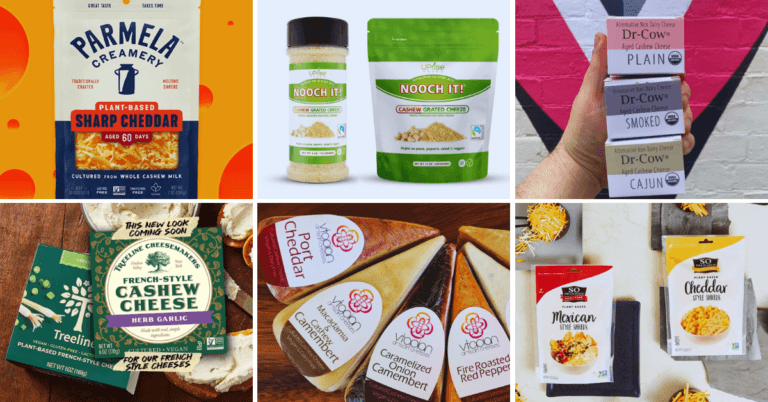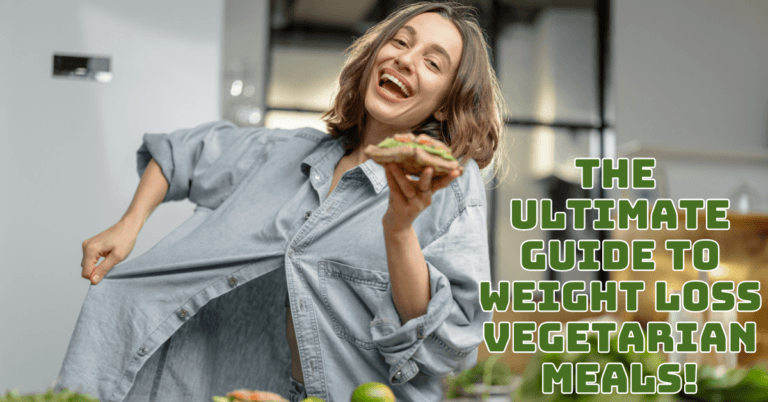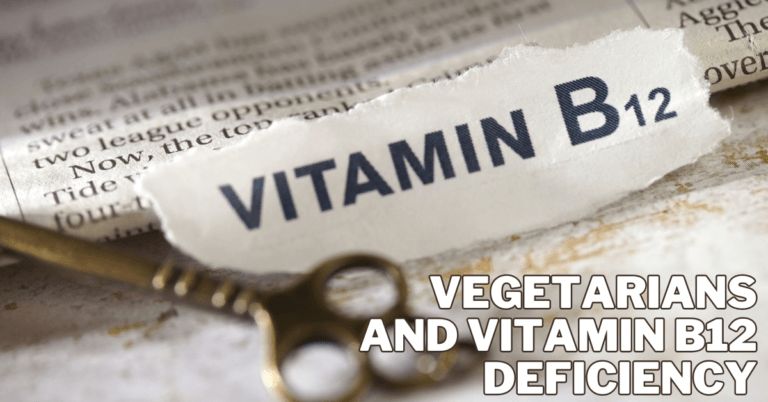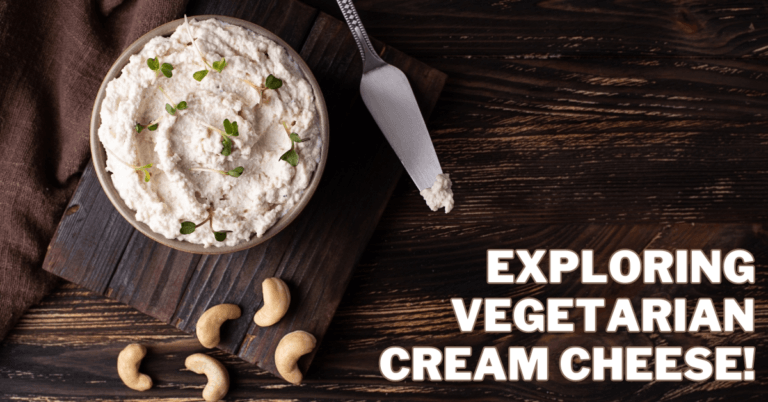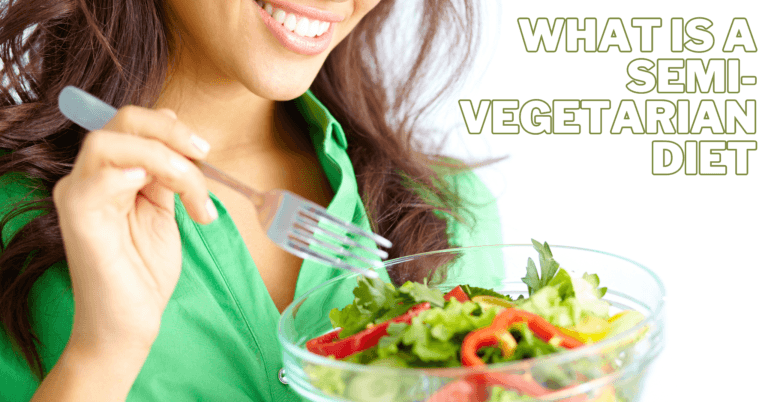What Is A Lacto Ovo Vegetarian Diet
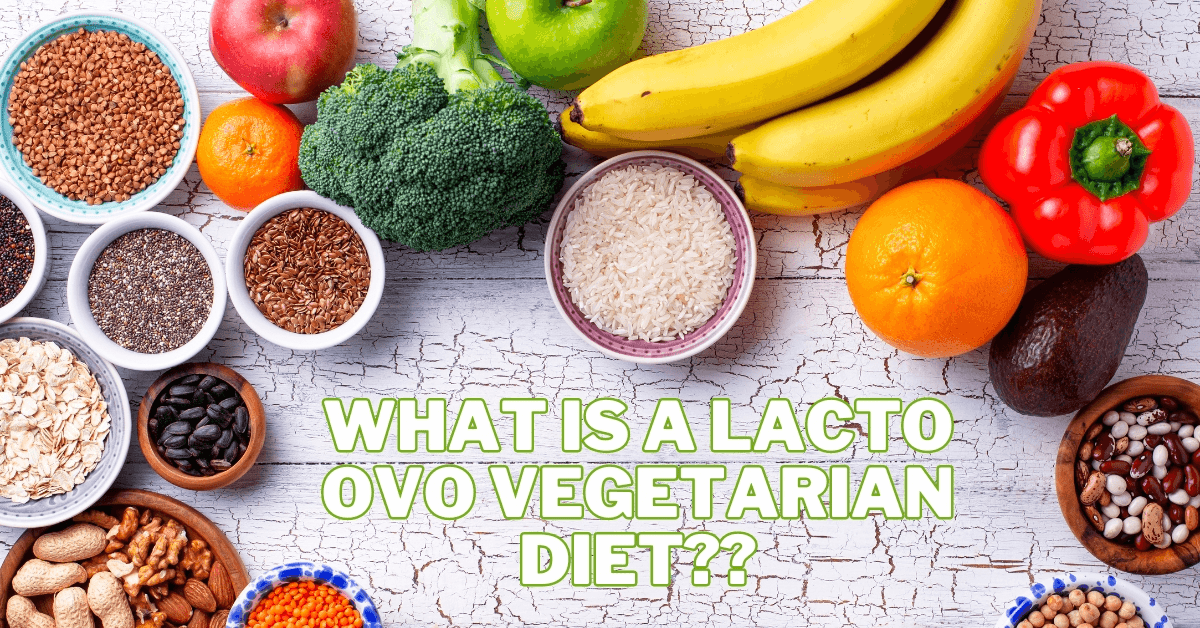
What Is A Lacto Ovo Vegetarian Diet
The lacto ovo vegetarian diet is a widely practiced dietary lifestyle that excludes meat, poultry, and seafood while incorporating dairy products (lacto) and eggs (ovo).
This dietary approach has garnered significant attention for its potential health benefits and ethical considerations, yet it also presents challenges and drawbacks.
In this discussion, we will explore a lacto ovo vegetarian diet and its potential benefits, such as improved heart health, reduced environmental impact, and ethical considerations regarding animal welfare.
Additionally, we will delve into the potential cons, including nutrient deficiencies, challenges in dining out, and a Sample lacto ovo vegetarian meal plan.
What Is A Lacto Ovo Vegetarian Diet?
A lacto ovo vegetarian diet excludes meat, poultry, and seafood while incorporating dairy products (lacto) and eggs (ovo).
By eliminating animal flesh, individuals following this diet rely heavily on plant-based foods for their nutritional needs.
Fruits, vegetables, grains, legumes, nuts, and seeds form the foundation of their meals, providing essential vitamins, minerals, fiber, and antioxidants.
Dairy products like milk, cheese, yogurt, and eggs contribute additional protein, calcium, vitamin D, and other nutrients to the diet.
Eggs offer versatility in cooking, allowing for a wide array of dishes, from breakfast classics like omelets to baked goods and desserts.
Including dairy and eggs adds flexibility and variety to the lacto ovo vegetarian diet, enabling individuals to enjoy diverse flavours and culinary experiences while meeting their nutritional requirements without consuming meat or seafood.
Let’s dive into ‘What is a lacto ovo vegetarian diet’ along with its benefits and drawbacks, making it a popular choice for those seeking a vegetarian lifestyle.
Benefits Of A Lacto Ovo Vegetarian Diet
A lacto ovo vegetarian diet presents many advantages by prioritizing plant-based foods while exploring ‘What is a lacto ovo vegetarian diet.’ Below are the key benefits of a Lacto Ovo Vegetarian Diet:

1. Heart Health
Heart health is paramount for overall well-being, with dietary choices pivotal in maintaining cardiovascular wellness.
Lacto ovo vegetarian diets, centring on plant-based foods while excluding meat, poultry, and seafood but including dairy and eggs, offer numerous benefits.
Rich in fruits and vegetables, they provide vital fiber, vitamins, minerals, and antioxidants, aiding in cholesterol reduction and blood sugar regulation.
Whole grains regulate blood sugar, lower cholesterol, and mitigate heart disease risk. Nuts and seeds, abundant in heart-healthy fats, enhance cholesterol levels and blood pressure.
Dairy offers essential nutrients like calcium and vitamin D. Lacto ovo vegetarian diets bolster heart health by prioritizing plant foods while moderating saturated fats and cholesterol.

2. Lower Risk Of Chronic Diseases
Research indicates that as compared to eating an omnivorous diet, adopting a lacto ovo vegetarian diet may be linked to a decreased chance of contracting prevalent chronic disorders such as type 2 diabetes, hypertension, and some cancers.
This reduced risk is attributable to the emphasis on plant-centric food choices inherent in the Lacto ovo vegetarian regimen.
Such dietary patterns, abundant in fruits, vegetables, whole grains, nuts, and seeds, are linked to improved metabolic health, blood pressure regulation, and decreased inflammation, pivotal in mitigating chronic disease onset.
By prioritizing plant-derived nutrition, lacto ovo vegetarians may fortify their defences against various health conditions, promoting long-term well-being and vitality.

3. Weight Management
Lacto Ovo Vegetarian Diet's benefits include weight management, frequently boasting lower calorie and saturated fat content, and potentially reducing body mass index (BMI).
The abundance of fiber in plant-based foods contributes to this effect by enhancing feelings of fullness and satiety, curbing overeating and promoting weight control.
Furthermore, focusing on nutrient-dense fruits, vegetables, whole grains, nuts, and seeds encourages the consumption of foods high in antioxidants, vitamins, and minerals while reducing the intake of processed, high-calorie foods.
Consequently, adhering to a lacto ovo vegetarian diet offers a holistic approach to weight management, supporting overall health and well-being.

4. Improved Digestive Health
As we continue our journey to ‘What is a lacto ovo vegetarian diet,’ we see that this diet fosters improved digestive health through various mechanisms.
Dietary fiber helps prevent constipation by adding bulk to stool and facilitating regular bowel movements, thus promoting gastrointestinal regularity and comfort.
Moreover, fiber serves as a prebiotic, nourishing beneficial bacteria in the gut and fostering a healthy microbiome.
This symbiotic relationship between fiber and gut bacteria enhances digestive function and well-being.
By prioritizing fibre-rich plant foods, lacto ovo vegetarians can maintain optimal digestive health, experience relief from digestive discomfort, and support long-term gastrointestinal wellness.

5. Environmental Sustainability
The benefits of a Lacto Ovo Vegetarian Diet, in contrast to diets rich in animal products, hold the potential to lessen one's environmental footprint significantly.
Plant-centric diets demand fewer natural resources and produce fewer greenhouse gas emissions, aligning with sustainability initiatives.
Cultivating plant-based foods generally entails reduced land, water, and energy usage compared to animal agriculture.
Moreover, the environmental toll associated with livestock farming, including deforestation, water pollution, and habitat destruction, is mitigated by reducing reliance on animal products.
By embracing lacto ovo vegetarianism, individuals can actively contribute to environmental conservation efforts, promoting a more sustainable and eco-conscious food system for future generations.

6. Ethical Considerations
The decision to embrace ‘What is a lacto ovo vegetarian diet’ often stems from profound ethical considerations, particularly concerning animal welfare and the environmental ramifications of animal agriculture.
Individuals who choose this dietary path eschew meat, poultry, and seafood consumption to reduce their involvement in practices perceived as detrimental to animal well-being.
By abstaining from these animal products, vegetarians aim to diminish their contribution to the suffering and exploitation endured by animals in the food production system.
Lacto ovo vegetarians recognize the adverse environmental impact of intensive animal farming, including deforestation, water depletion, and greenhouse gas emissions, and seek to mitigate these effects through their dietary choices.

7. Versatility And Variety
Lacto ovo vegetarian diets present a cornucopia of delicious and nutritious foods, spanning fruits, vegetables, grains, legumes, dairy products, and eggs. This extensive array offers an abundance of meal options.
The versatility of these ingredients empowers individuals to experiment with diverse flavours, textures, and cooking methods, ensuring that mealtimes remain enjoyable and nourishing.
Whether crafting vibrant salads, hearty grain bowls, flavorful stir-fries, or indulgent breakfast dishes, lacto ovo vegetarians revel in the freedom to explore a vast spectrum of culinary delights.
By embracing the diverse bounty of ‘What is a lacto ovo vegetarian diet’ alongside dairy and eggs, individuals can reap the nutritional benefits of a varied and balanced diet.
Disadvantages Of A Lacto Ovo Vegetarian Diet
The lacto ovo vegetarian diet also carries some drawbacks. This dietary pattern may lead to deficiencies in certain nutrients, predominantly found in animal products. Disadvantages of a lacto ovo vegetarian diet include the following:
1. Potential Nutrient Deficiencies
Lacto ovo vegetarians are more prone to deficiencies in essential nutrients like vitamin B12, iron, calcium, omega-3 fatty acids, and zinc.
These nutrients are typically abundant in animal products like meat and fish. To ensure you're getting enough, careful planning is key.
Look for fortified foods like breakfast cereals enriched with B12 or plant-based milks with added calcium.
Consider including fortified plant milk and soy products in your diet. Consulting a doctor about supplements can also be a good idea.
By strategically incorporating these options, you can address potential nutrient gaps and ensure your lacto ovo vegetarian diet supports optimal health.
2. Protein Sources
Legumes like beans and lentils are protein powerhouses, while tofu and tempeh, made from soybeans, offer a complete protein profile.
Remember nuts and seeds—they're not just for snacking! Adding a handful of almonds, walnuts, or sunflower seeds to salads, stir-fries, or yogurt can significantly boost your protein intake.
By strategically incorporating these plant-based protein sources, lacto ovo vegetarians can ensure they get the building blocks their bodies need for optimal health.
3. Social Challenges
Navigating social situations can be a hurdle for lacto ovo vegetarians. Imagine a celebratory dinner with a roast – delicious for meat-eaters but limiting for you.
Here's how to navigate these situations: be proactive! Research vegetarian options at restaurants beforehand or suggest potlucks where you can bring a delicious and satisfying vegetarian dish.
Open communication is key – politely explain your dietary preferences to avoid any last-minute scrambling or awkward moments.
With a little preparation and clear communication, you can navigate the disadvantages of a lacto ovo vegetarian diet and still enjoy spending time with loved ones.
4. Limited Food Options
Travelling the world or dining out can challenge lacto ovo vegetarians, especially in regions with strong meat-centric culinary traditions.
Imagine craving a delicious meal but finding only meat-heavy options on the menu. Be a culinary detective!
Do your research beforehand – look for restaurants with vegetarian menus or inquire about substitutions at eateries.
Pack some travel snacks or simple meals if venturing to remote areas with limited vegetarian options.
By being resourceful about ‘What is a lacto ovo vegetarian diet,’ you can navigate even the most meat-centric culinary landscapes and still enjoy a balanced vegetarian diet.
5. Potential For Unhealthy Choices
A lacto ovo vegetarian diet can lead to a healthier lifestyle, but not all vegetarian choices are created equal.
Fried veggie burgers, gooey cheese pizzas, and sugary yogurt parfaits might be vegetarian, but they can be loaded with unhealthy fats, sugars, and calories.
You could gain weight and experience other health issues if you rely too much on these alluring delicacies and lose the desired health benefits.
Partially raw foods such as fruits, vegetables, whole grains, legumes, nuts, and seeds are essential. A lacto ovo vegetarian diet has drawbacks, but you can avoid them wisely.
6. Misconceptions About Nutrition
A common misconception surrounds the nutritional adequacy of a lacto ovo vegetarian diet. To combat these myths, education is key!
Seek information from reputable sources about what a lacto ovo vegetarian diet is. To address any nutrient deficiencies like vitamin B12 and iron, learn how to create a balanced vegetarian diet full of protein sources like legumes, nuts, and eggs and include fortified foods or supplements.
You may end these worries and take advantage of the well-established health advantages of a well-planned lacto ovo vegetarian diet by being aware of your nutritional requirements and making knowledgeable decisions.
7. Ethical Dilemmas
Even for those who choose a lacto ovo vegetarian diet for ethical reasons concerning animal welfare and environmental impact, a lingering ethical dilemma can exist: the source of their dairy and eggs.
Factory farming practices often raise concerns about animal confinement, the use of antibiotics, and overall welfare.
To address this, lacto ovo vegetarians can delve deeper. Look for labels indicating humane animal treatment and sustainable practices.
Consider buying from local farms or farmers' markets to gain transparency about the source of your animal products.
By supporting producers in prioritizing ethical and sustainable practices, lacto ovo vegetarians can minimize the ethical conflict associated with their dietary choices.
Sample Lacto Ovo Vegetarian Meal Plan
Embark on a ‘What is a lacto ovo vegetarian diet’ journey with our Sample Lacto Ovo-Vegetarian Meal Plan (3 days).
These sample meal plans provide breakfast, lunch, dinner, and snack options throughout the day. You can modify the ingredients and quantity sizes to suit your needs and tastes.

Day 1 (Protein Packed)
1. Breakfast
Greek yogurt is an excellent source of protein. Top it with your favourite berries for a touch of sweetness and vitamins.
Sprinkle some granola on top for added texture and complex carbohydrates. Drizzle honey on top to impart a hint of sweetness.
2. Mid-Morning Snack
A hard-boiled egg is a simple and convenient protein-rich snack containing all the essential amino acids your body needs.
3. Lunch
Black bean quesadillas, a good source of protein and fiber, are a delicious and satisfying vegetarian lunch option. Mash them slightly and spread them onto a whole-wheat tortilla. Top with salsa and guacamole for flavour, vitamins, and healthy fats.
4. Afternoon Snack
Rice cakes are a low-calorie and low-fat snack base. Top them with mashed avocado for a creamy texture and healthy fats.
5. Dinner
Whole-wheat pasta with marinara sauce, grilled vegetables, and parmesan cheese is packed with flavour and nutrients.
Use whole-wheat pasta for added fiber. Choose your favourite marinara sauce with grilled vegetables like zucchini, eggplant, or bell peppers. Sprinkle some parmesan cheese for a salty finish.
6. Evening Snack
Bell peppers offer a variety of vitamins and a satisfying crunch. Pair them with hummus for a protein and healthy fat boost.
Day 2 (Fiber Focused)
1. Breakfast
Starting the day with whole-wheat pancakes provides complex carbohydrates, which release energy slowly.
Adding fruit adds natural sweetness and essential vitamins and minerals, while the drizzle of maple syrup gives a touch of indulgence without overwhelming the meal.
2. Mid-Morning Snack
Veggie sticks and hummus make a satisfying and nutritious snack. The veggies provide fiber, vitamins, and minerals, while hummus offers protein and healthy fats.
3. Lunch
Tofu scramble with spinach and mushrooms is hearty and protein-rich. Serving it with whole-wheat toast adds more fiber and complex carbohydrates.
4. Afternoon Snack
Yogurt with granola and dried fruit is a balanced snack that combines protein, carbohydrates, and healthy fats.
5. Dinner
Vegetarian chilli with brown rice is a comforting and nutritious meal. The chilli is packed with protein and fiber from beans and vegetables, while brown rice provides complex carbohydrates and additional fiber. Add a side salad for freshness and hydration.
6. Evening Snack
Cottage cheese with pineapple chunks is light yet satisfying. This snack offers a well-rounded combination of protein and carbohydrates.

Day 3 (Protein Packed)
1. Breakfast
Scrambled eggs with cheese and whole-wheat toast provide a protein-rich start to the day.
Cheese provides flavour and calcium, and eggs are a great source of high-quality protein. Toast made with whole wheat adds fiber and complex carbohydrates to the mixture.
2. Mid-Morning Snack
Trail mix with nuts, seeds, and dried fruit is a convenient and nutrient-dense snack option. Dried fruit contributes a natural sweetness, vitamins, and minerals, and nuts and seeds offer protein and good fats.
3. Lunch
A veggie wrap with hummus, avocado, and roasted vegetables is delicious and satisfying.
Hummus contains plant-based protein and good fats, and avocado provides extra healthy fats and smoothness.
Roasted vegetables offer fiber, vitamins, and minerals, and wrapping them in a whole-grain tortilla adds extra fiber and complex carbohydrates.
4. Afternoon Snack
Apple slices with peanut butter make a nutritious and satisfying snack. Peanut butter offers protein and good fats, while apples are rich in antioxidants and fiber.
5. Dinner
Vegetarian lasagna is a hearty and flavorful dish perfect for dinner. It typically contains layers of pasta, marinara sauce, vegetables, and cheese.
This version is likely made with plenty of vegetables like spinach, zucchini, and bell peppers, providing fiber, vitamins, and minerals.
6. Evening Snack
Greek yogurt with berries is a refreshing and nutritious evening snack. This light yet satisfying snack makes it a perfect way to end the day healthily.
FAQ
1. Is a lacto ovo vegetarian healthier than a vegan?
Answer: Both lacto ovo (eggs & dairy) and vegan diets can be healthy. Lacto ovo vegetarians might have an easier time getting protein from eggs and dairy but require planning to avoid nutrient deficiencies.
Vegans may have lower saturated fat intake but must be extra mindful of getting enough protein and essential vitamins.
The optimal choice for healthiness varies based on your unique requirements and preferences.
2. Can lacto ovo vegetarians eat rice?
Answer: Yes, lacto ovo vegetarians can eat rice. Rice is a grain and a staple food in many cultures worldwide.
Lacto ovo vegetarian diets exclude meat, poultry, and seafood but allow eggs and dairy products. Rice falls outside these categories and is perfectly suitable for lacto ovo vegetarians.
Conclusion
In conclusion, what a lacto ovo vegetarian diet is is that it excludes meat, poultry, and seafood but embraces eggs and dairy products.
This dietary approach offers potential health benefits like reduced risk of heart disease and obesity.
However, careful planning is crucial to avoid vitamin B12, iron, calcium, and omega-3 fatty acid deficiencies.
Ultimately, lacto ovo vegetarianism can be a healthy and sustainable way to eat. Still, it requires an awareness of its limitations and a commitment to incorporating various nutrient-rich plant-based foods.
I trust you enjoyed this article about What Is A Lacto Ovo Vegetarian Diet. Please stay tuned for more blog posts soon. Take care!
JeannetteZ
>>>Please click here to read my Vegan Travel Guides To World Destinations<<<
>>>Want To Learn How To Create Delicious, Cruelty-Free, Healthy AND 100% Vegan Meals? Try These Awesome Vegan Cooking Courses With A Free 7-DAY MEMBERSHIP<<<
Your Opinion Is Important To Me
Do you have thoughts, ideas, or questions? I would love to hear from you. Please leave me your questions, experiences, and remarks about the What Is A Lacto Ovo Vegetarian Diet article in the comments section below. You can also reach me by email at Jeannette@LivingTheVeganLifestyle.org.
Disclosure
This post may contain affiliate links. I earn from qualifying purchases as an Amazon Associate and other affiliate programs. Please read my full disclosure.
Here are links to some of my favourite articles:
Vegetarians And Vitamin B12 Deficiency
Vegan Diet And Vitamin B12 Deficiency
Unlocking The Power Of Vegan Vitamin A
Best Vegan Food Sources Of Vitamin D

